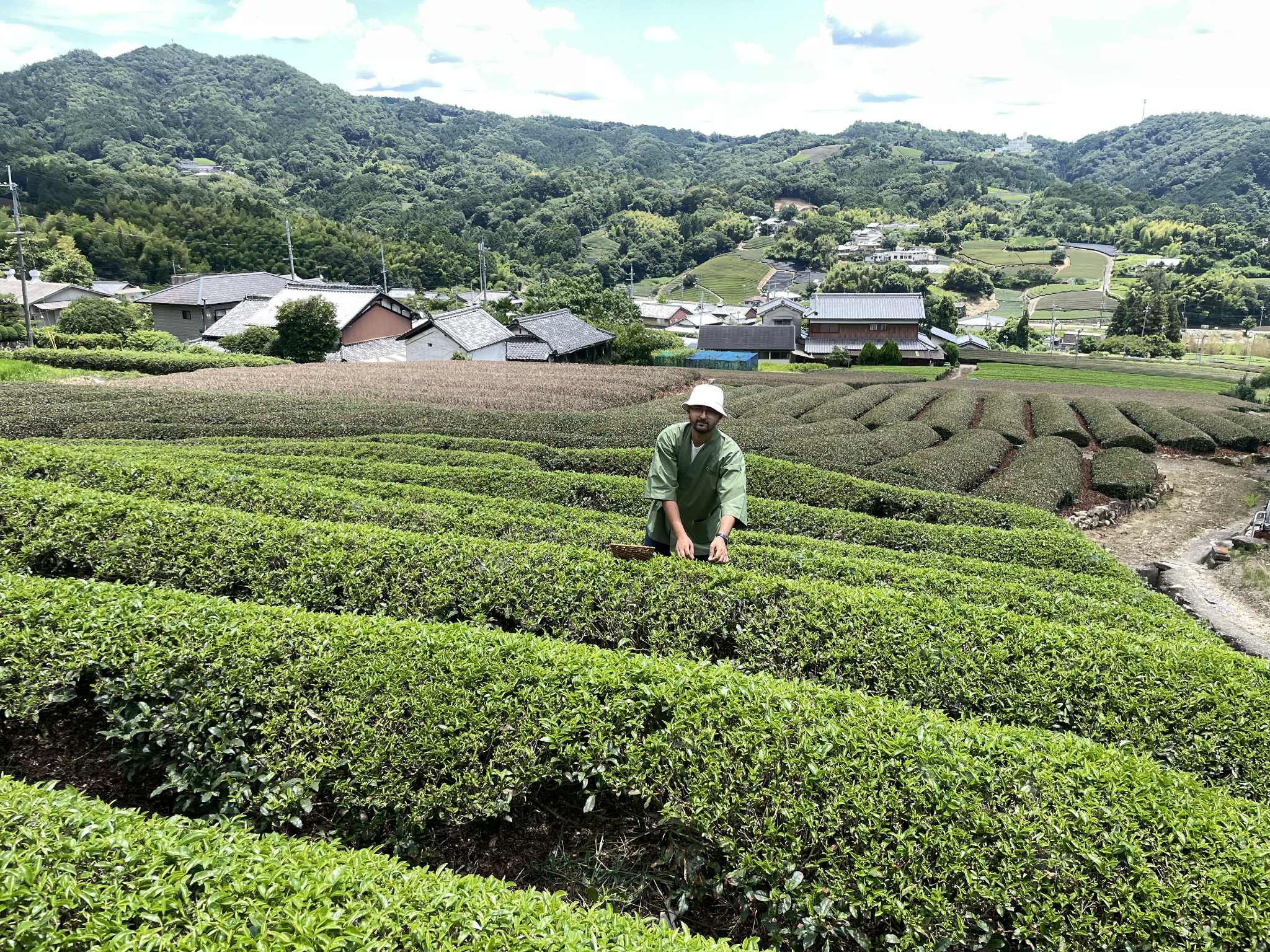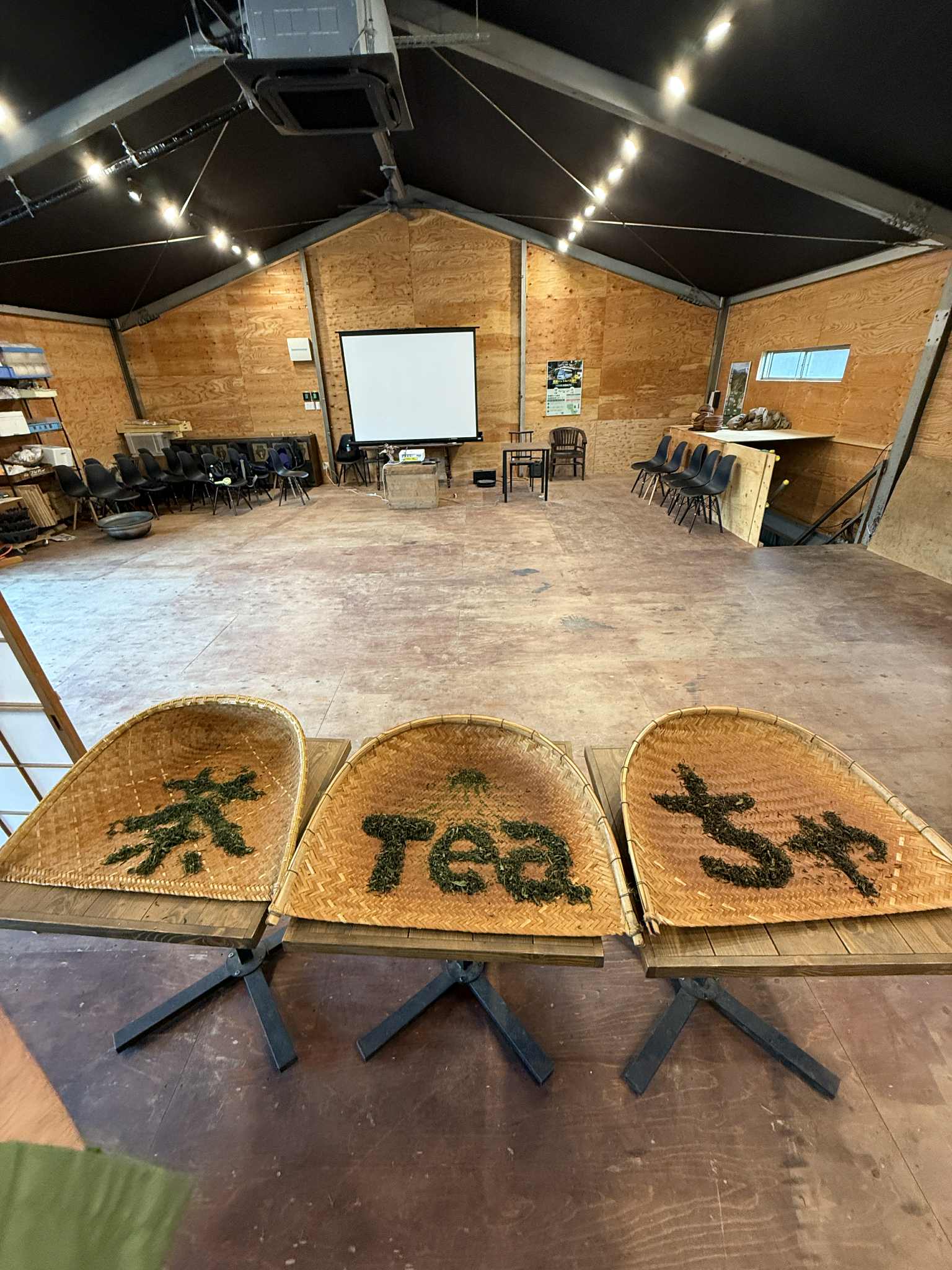
Before Obubu
I come from Assam, India, where my family owns a small tea field and I grew up surrounding tea field. My father planted the field around 40 years back and since then tea gardening has been our family heritage. Currently we only harvest the leaves and sell raw leaves to big factories for processing. Assam has Camellia Assamica plant variety and makes mostly black tea (CTC).
For my engineering education and corporate work, I moved to bigger city and was staying away from family and returned only last year. When I came back, I could clearly see that the farm was not at its 100% potential. A lot of things could be improved. Plant health, quality of harvested leaf, product yield, flavour profile, even the weeding cycle.

I tried talking with neighbour farmers, but I realized they were also facing the same challenges and struggling to find proper solutions. It became clear to me that if I wanted to improve my farm, I needed to study, do research, and look for solutions myself. I knew I had to try and bring in new or modern techniques to achieve better results.
Along with working on harvesting, I was always fascinated by the processing side how the same leaf can be turned into many different kinds of tea depending on the method. That curiosity made me search for tea-related training and internships online, and that’s when I found Obubu. The idea of a 3-month internship in Japan felt perfect. Japan has a rich tea history, strong traditions, and a whole ecosystem built around tea. I felt it would be the best place to learn and bring back new knowledge to Assam.
When I was preparing to leave for Japan, I was excited but also a little nervous. Excited because I was finally taking a step towards improving my farm and following my passion for tea. Nervous because it was my first time travelling abroad and living in Japan, in a different culture, far away from home. But I knew this program would change me and help me see tea in a new way.
During Obubu
Before coming to Obubu, I knew I would learn about Japanese tea and experience working in a small tea farm. But the reality went far beyond my expectations. I did not only learn about Japanese tea, but also got to understand it in a much deeper way. Every day brought something new. It was a full circle of tea education that gave me both practical skills and a wider vision of what tea can be.
Obubu is a small team company, and that became one of the best parts of the internship. Because the team is small, I could join and participate in almost every step of the work. I truly lived the “farm to cup” cycle. From farming and weeding, to processing and packing, and even logistics and operations, I got to see the entire journey a tea farm goes through to produce high quality tea. This gave me a real picture of how much effort and detail is behind a single cup.




I was always amazed by how proud Obubu is about tea education and hospitality. They do a great job of spreading Japanese tea to the world. During each tea tour, guests are given in-depth knowledge about the tea plant, different varieties, brewing methods, tea chemistry, and the timing of seasonal harvests. I enjoyed being part of these presentations and sharing what I was learning. It felt good to connect with people through tea.
In the farming and production side, I learned a lot. With Akky-san’s guidance, learning how to use the harvesting machine and how to trim properly. I also understood how important the weeding cycle is for the health of the plants. In the factory, I joined the processing steps like steaming, rolling, and drying, and I could see how each step changes the final taste and quality of the tea.

I also supported logistics and operations. I helped with packaging, labelling, and shipping orders. I learned the importance of keeping shared spaces clean and organized. Even these small details are part of the big picture, making sure the tea is delivered fresh and with care to people around the world.

And finally, living together with people from around the world was a great cultural exchange in itself.
Overall, the internship was not just about learning techniques, but about living the life of a tea farmer, producer, and host. It gave me a complete experience of what it means to work with tea every single day.
After Obubu
Looking back at these three months, I feel this internship has given me much more than I imagined. When I first returned to my family farm in Assam last year, I saw many challenges and I knew I needed to learn and bring new solutions. Obubu gave me exactly that-knowledge, skills, and inspiration.
Now, I understand tea in a more complete way. From farming to packing, I have seen how every step affects the final cup. I also learned about the importance of education and hospitality. These experiences made me realize that improving a tea farm is not just about the field or the factory, but about the whole ecosystem around tea.
For my future, I want to take this knowledge back to Assam and apply it to my family farm. My goal is to improve plant health, make better quality leaf, and explore different processing methods. I am especially inspired to try sencha shaped black tea, using technique I saw here. I believe Assam tea has great potential, and by adding some modern or different techniques, I can create unique teas with stronger flavour profiles.

This internship also changed me as a person as well. I feel more confident. I learned the value of teamwork, respect for the leaf, and respect for people who share the same passion.
If someone asked me about joining the Obubu internship, I would say without doubt-do it. It is not only about tea, but about life. You will learn how much work and love goes into every cup, and you will carry that knowledge with you forever.

